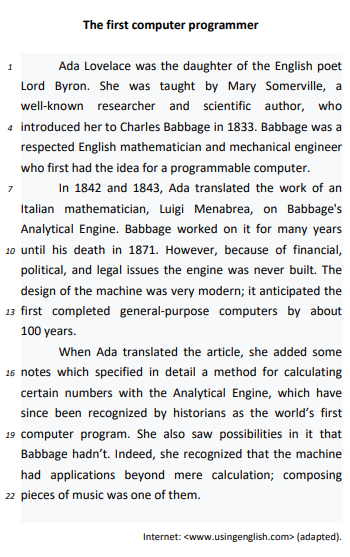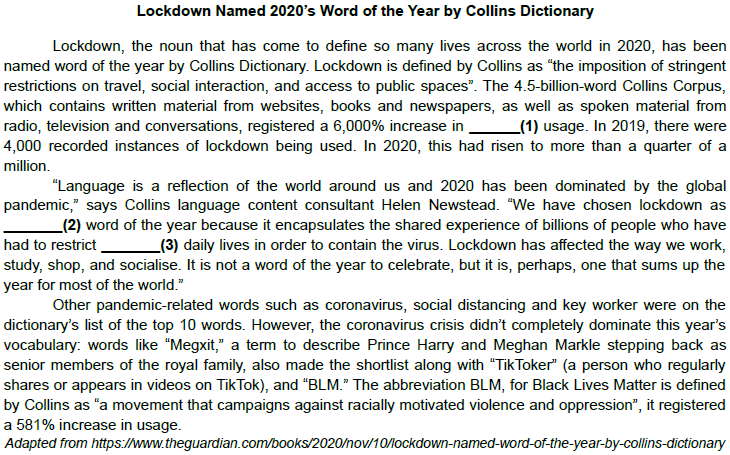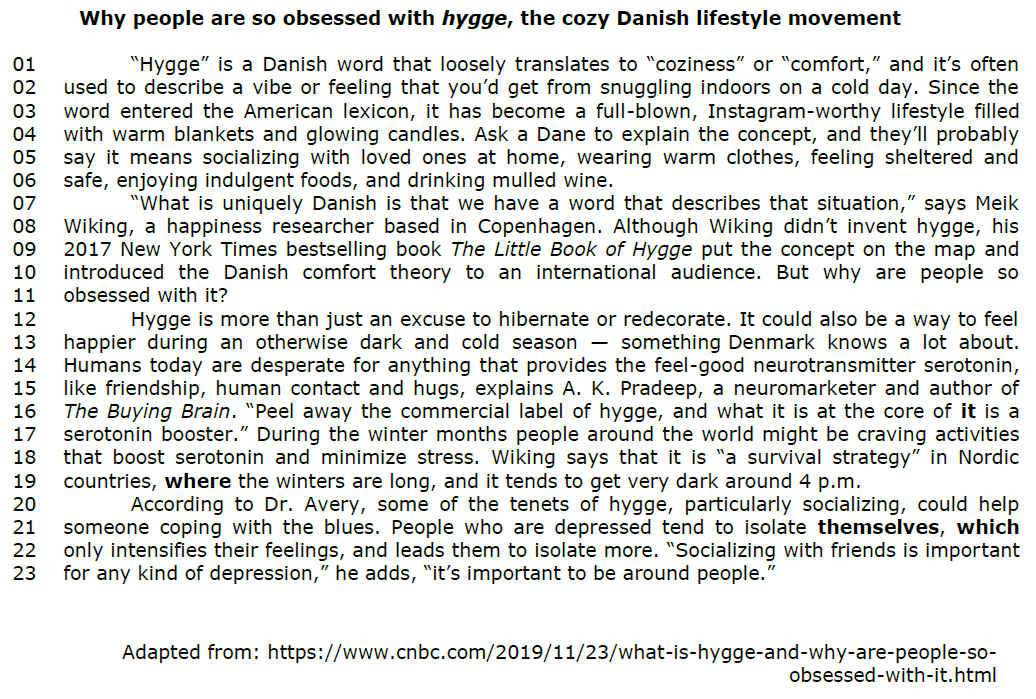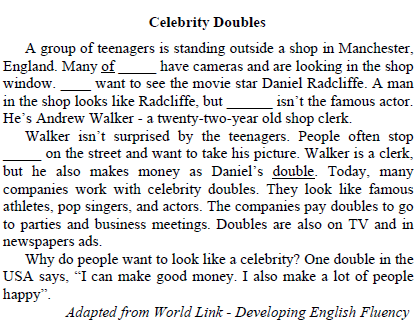Text 1A2-II
Chagas disease, also known as American trypanosomiasis, is a potentially life-threatening illness caused by the protozoan parasite Trypanosoma cruzi. About 6-7 million people worldwide are estimated to be infected with T. cruzi. The disease is found mainly in endemic areas of 21 continental Latin American countries, where it has been mostly transmitted to humans and other mammals by contact with feces or urine of triatomine bugs (vector-borne), known as kissing bugs, among many other popular names, depending on the geographical area.
Chagas disease is named after Carlos Ribeiro Justiniano Chagas, a Brazilian physician and researcher who discovered the disease in 1909. Chagas disease was once entirely confined to continental rural areas of the Region of the Americas (excluding the Caribbean islands). Due to increased population mobility over previous decades, most infected people now live in urban settings and the infection has been increasingly detected in the United States of America, Canada, and many European and some African, Eastern Mediterranean and Western Pacific countries.
Chagas disease’s transmission is caused by T. cruzi parasites, which are mainly transmitted by contact with feces/urine of infected blood-sucking triatomine bugs. Normally they hide during the day and become active at night when they feed on animal blood, including human blood. They usually bite an exposed area of skin such as the face (hence its common name, kissing bug), and the bug defecates or urinates close to the bite. The parasites enter the body when the person instinctively smears the bug’s feces or urine into the bite, other skin breaks, the eyes, or the mouth. T. cruzi can also be transmitted by consumption of food or beverages contaminated with T. cruzi through, for example, contact with feces or urine of infected triatomine bugs or common opossums. This kind of transmission typically causes outbreaks with more severe cases and mortality; passage from an infected mother to her newborn during pregnancy or childbirth; blood or blood product transfusion from infected donors; some organ transplants using organs from infected donors; and laboratory accidents.
Internet: (adapted).
Regarding the transmission of Chagas disease, according to text 1A2-II, judge the following items.
I Blood product transfusion from infected donors can transmit the disease.
II The also called kissing bug’s feces and urine carry the protozoan parasite.
III Infected pregnant women cannot contaminate their babies during pregnancy or childbirth.
IV Contaminated food or drinks can transmit Chagas disease to people.
Choose the correct option.
Jack Kilby’s revolutionary idea was to make all the different components of a circuit out of the same flat block of semiconductor material. Not only would this get rid of wires and faulty connections, it would make the entire circuit much more compact. Kilby demonstrated his first “integrated circuit” on Sept. 12, 1958.
In the third sentence of the fourth paragraph, the pronoun “it” refers to Intel.
The words “longing”, “change”, “myself” and “hardcore”, underlined in the text, are respectively:
Choose the alternative with words that respectively complete gaps (1), (2) and (3) in the correct way.
Complete the sentence below with the correct pronoun. Choose the CORRECT answer.

Complete the sentence below with the correct pronoun. Choose the CORRECT answer.

Consider the bold words in the text: it (l. 16); where (l. 19); themselves (l. 21); which (l. 21). Choose the alternative that states what the words refer to, in the order they are mentioned in the text.
The pronouns THEY and IT in “They always talked about the American dream, and I wanted to come and see it” refer, respectively, to:
Choose between its, it’s, their or they’re.
- The olive oil and _____derivates can be good for your health.
- My dogs are crazy, ______ always with ______ balls.
- I’ve come to the conclusion that ________ impossible to be happy without love.
Text for the item.

Based on the text, judge the items below. “them” (line 22) refers to “applications” (line 21).
INSTRUCTIONS: Read the text carefully and then mark the alternatives that answer the question or complete the sentences presented after it.
TEXT III
The cab had arrived ten minutes late, then had got stuck in a monumental traffic jam on Charing Cross Road. ‘Sorry, love, nothing doing,’ the driver had said. Joanna had looked at her watch, chucked a ten-pound note at him and jumped out of the cab. As she’d hared through
the streets towards Covent Garden, her chest laboring and her nose streaming, she’d wondered whether life could get any worse.
Joanna was snapped out of her reverie as the congregation suddenly ceased their chatter. She opened her eyes and turned round as Sir James Harrison’s family members began to file into the church.
Leading the party was Charles Harrison, Sir James’s only child, now well into his sixties. He lived in Los Angeles, and was an acclaimed director of big-budget action films filled with special effects. She vaguely remembered that he had won an Oscar some time ago, but his films weren’t the kind she usually went to see.
By Charles Harrison’s side was Zoe Harrison, his daughter. As Alec had hoped, Zoe looked stunning in a fitted black suit with a short skirt that showed her long legs, and her hair was pulled back in a sleek chignon that set off her classic English-rose beauty to perfection.
She was an actress, whose film career was on the rise, and Matthew had been mad about her. He always said Zoe reminded him of Grace Kelly his dream woman, apparently – leading Joanna to wonder why Matthew was going out with a dark-eyed, gangly brunette such as herself. She swallowed a lump in her throat, betting that Winnie the Pooh hot-water bottle that his ‘Samantha” was a petite blonde.
Holding Zoe Harrison’s hand was a young boy of around nine or ten, looking uncomfortable in a black suit and tie: Zoe’s son Jamie Harrison, named after his great-grandfather. Zoe had given birth to Jamie when she was only nineteen and still refused to name the father. Sir James had loyally defended his granddaughter and her decision to both have the baby and to remain silent about Jamie’s paternity.
Joanna thought how alike Jamie and his mother were: the same fine features, a milk and rose complexion, and huge blue eyes. Zoe Harrison kept him away from the cameras as much as possible – if Steve had got a shot of mother and son together, it would probably make the front page tomorrow morning.
Behind them came Marcus Harrison, Zoe’s brother. Joanna watched him as he drew level with her pew. Even with her thoughts still on Matthew, she had to admit Marcus Harrison was a serious ‘hottie’, as her fellow reporter Alice would say. Joanna recognised him from
the gossip columns – most recently squiring a blonde British socialite with a triple-barreled surname. As dark as his sister was fair, but sharing the same blue eyes, Marcus carried himself with louche confidence. His hair almost touched his shoulders and, wearing a crumpled black jacket and a white shirt unbuttoned at the neck, he oozed charisma. Joanna dragged her gaze away from him. Next time, she thought firmly, I’m going for a middle-aged man who likes bird watching and stamp collecting. She struggled to recall what Marcus Harrison did for a living – a fledgling film producer, she thought.
Well, he certainly looked the part.
‘Good morning, ladies and gentlemen’. The vicar spoke from the pulpit, a large picture of Sir James Harrison in front of him, surrounded with wreaths of white roses.
‘Sir James’s family welcomes you all here and thanks you for coming to pay tribute to a friend, a colleague, a father, grandfather and great-grandfather, and perhaps the finest actor of this century. For those of us who had the good fortune to know him well, it will not come as a
surprise that Sir James was adamant that this was not to be a sombre occasion, but a celebration. Both his family and I have honoured his wishes. Therefore, we start with Sir James’s favourite hymn “I Vow to Thee My Country”. Please stand’.
RILEY, Lucinda. The Love Letter. London: Pan Books, 2018,p. 13-15.
In the sentence “[…] leading Joanna to wonder why Matthew was going out with a dark-eyed, gangly brunette such as herself”, the pronoun herself refers to
INSTRUCTIONS: Read the text carefully and then mark the alternatives that answer the question or complete the sentences presented after it.
TEXT III
The cab had arrived ten minutes late, then had got stuck in a monumental traffic jam on Charing Cross Road. ‘Sorry, love, nothing doing,’ the driver had said. Joanna had looked at her watch, chucked a ten-pound note at him and jumped out of the cab. As she’d hared through
the streets towards Covent Garden, her chest laboring and her nose streaming, she’d wondered whether life could get any worse.
Joanna was snapped out of her reverie as the congregation suddenly ceased their chatter. She opened her eyes and turned round as Sir James Harrison’s family members began to file into the church.
Leading the party was Charles Harrison, Sir James’s only child, now well into his sixties. He lived in Los Angeles, and was an acclaimed director of big-budget action films filled with special effects. She vaguely remembered that he had won an Oscar some time ago, but his films weren’t the kind she usually went to see.
By Charles Harrison’s side was Zoe Harrison, his daughter. As Alec had hoped, Zoe looked stunning in a fitted black suit with a short skirt that showed her long legs, and her hair was pulled back in a sleek chignon that set off her classic English-rose beauty to perfection.
She was an actress, whose film career was on the rise, and Matthew had been mad about her. He always said Zoe reminded him of Grace Kelly his dream woman, apparently – leading Joanna to wonder why Matthew was going out with a dark-eyed, gangly brunette such as herself. She swallowed a lump in her throat, betting that Winnie the Pooh hot-water bottle that his ‘Samantha” was a petite blonde.
Holding Zoe Harrison’s hand was a young boy of around nine or ten, looking uncomfortable in a black suit and tie: Zoe’s son Jamie Harrison, named after his great-grandfather. Zoe had given birth to Jamie when she was only nineteen and still refused to name the father. Sir James had loyally defended his granddaughter and her decision to both have the baby and to remain silent about Jamie’s paternity.
Joanna thought how alike Jamie and his mother were: the same fine features, a milk and rose complexion, and huge blue eyes. Zoe Harrison kept him away from the cameras as much as possible – if Steve had got a shot of mother and son together, it would probably make the front page tomorrow morning.
Behind them came Marcus Harrison, Zoe’s brother. Joanna watched him as he drew level with her pew. Even with her thoughts still on Matthew, she had to admit Marcus Harrison was a serious ‘hottie’, as her fellow reporter Alice would say. Joanna recognised him from
the gossip columns – most recently squiring a blonde British socialite with a triple-barreled surname. As dark as his sister was fair, but sharing the same blue eyes, Marcus carried himself with louche confidence. His hair almost touched his shoulders and, wearing a crumpled black jacket and a white shirt unbuttoned at the neck, he oozed charisma. Joanna dragged her gaze away from him. Next time, she thought firmly, I’m going for a middle-aged man who likes bird watching and stamp collecting. She struggled to recall what Marcus Harrison did for a living – a fledgling film producer, she thought.
Well, he certainly looked the part.
‘Good morning, ladies and gentlemen’. The vicar spoke from the pulpit, a large picture of Sir James Harrison in front of him, surrounded with wreaths of white roses.
‘Sir James’s family welcomes you all here and thanks you for coming to pay tribute to a friend, a colleague, a father, grandfather and great-grandfather, and perhaps the finest actor of this century. For those of us who had the good fortune to know him well, it will not come as a
surprise that Sir James was adamant that this was not to be a sombre occasion, but a celebration. Both his family and I have honoured his wishes. Therefore, we start with Sir James’s favourite hymn “I Vow to Thee My Country”. Please stand’.
RILEY, Lucinda. The Love Letter. London: Pan Books, 2018,p. 13-15.
In the sentence “She was an actress, whose film career was on the rise”, the word whose is
Text 2: Benefits of exercise

INSTRUCTIONS: Read the text and answer the question that follow it
The pronouns "we". "our", "ourselves", and "us" in the first paragraph refer to







